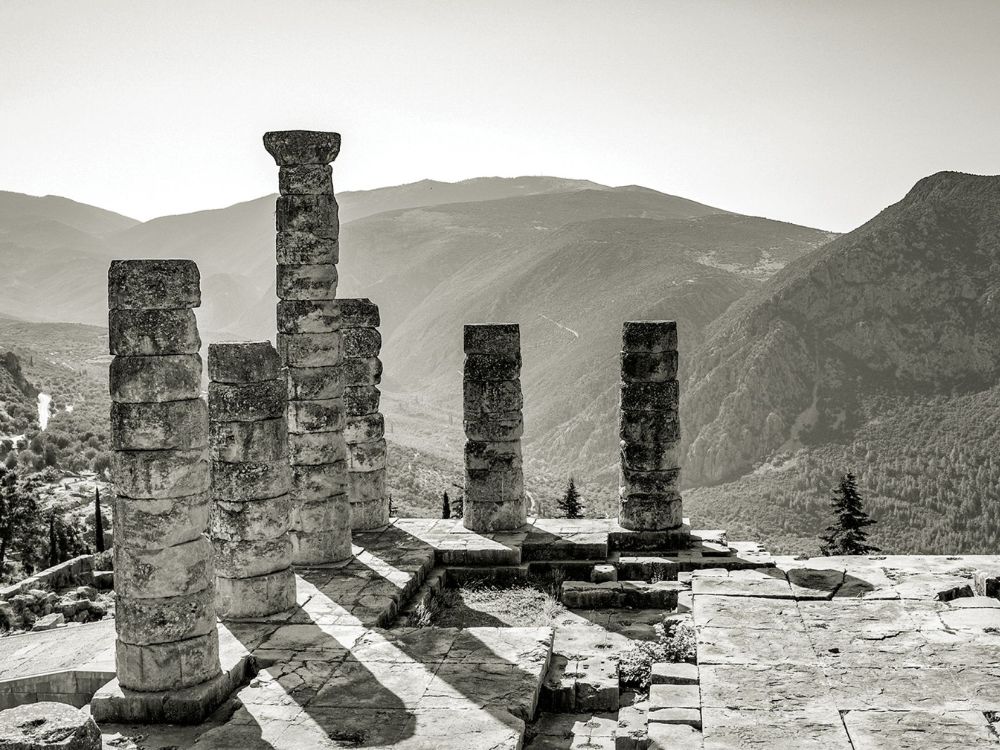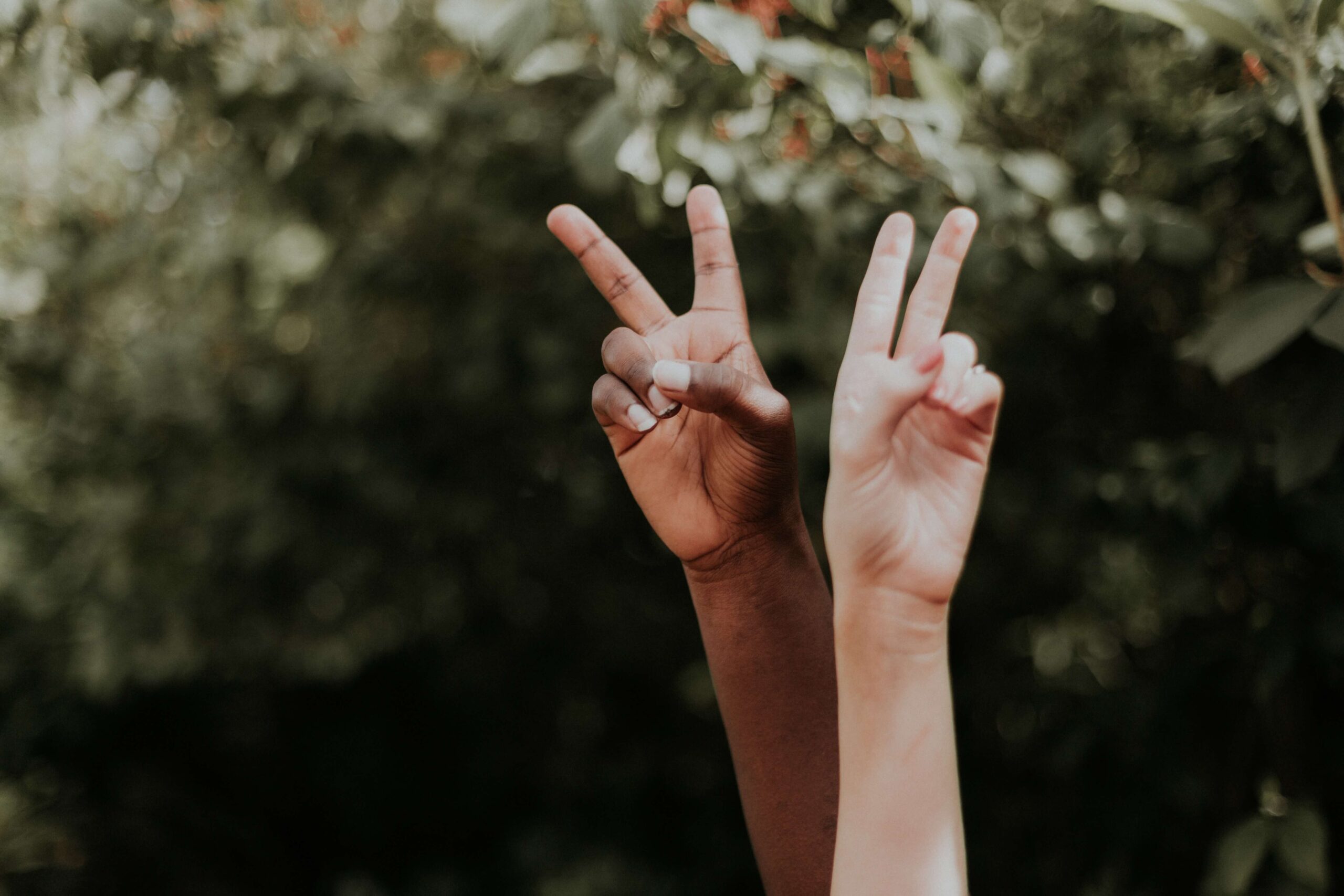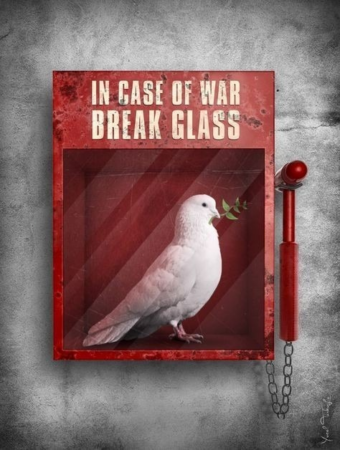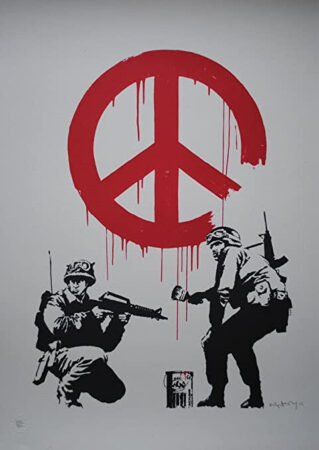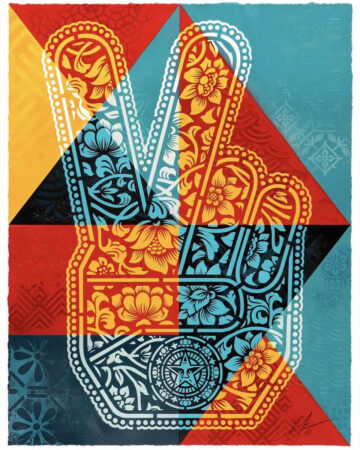Over the millennia, humanity has struggled with deep and pressing problems: suffering in our hearts, conflict in our communities, war among nations and the degradation of our planet. Not a moment passes without a major news outlet drawing attention to our deeply troubling times.
These issues are typically given cursory explanations with little, if any, understanding of their shared root cause. As a result, our leaders look for peace in a negotiation between minds which, at best, produces a fragile alliance. Since it is the nature of the mind to change, that alliance will inevitably come to an end. The only lasting peace – within oneself and within our society – must be founded on something that is prior to, and independent of, the mind.
A deeper analysis reveals that these seemingly separate forms of disharmony are all symptoms of the prevailing worldview, which is founded upon the presumption of separation. This presumption claims that our essential self, or being, is temporary and finite. As such, each of us is an individual self that is separate from other people, animals and nature. Once an individual considers itself a discrete and independently existing entity, all its thoughts, feelings, activities and relationships will unfold in a manner that is consistent with this false belief. In fact, its every idea and activity will be an expression of this primary belief, thereby licensing behaviour that violates the first principle of truth, namely, the unity of being.
All the conflicts between individuals, communities and nations, and the exploitation and degradation of the earth, can be traced back to the violation of a single principle: the fact that we share our being. Therefore, any remedy that does not address this primary cause will have, at best, only a temporary effect. The seeds of separation which gave rise to the crisis in the first place will remain subliminally imprinted in the remedy, and it will only be a matter of time before they sprout again into new crises. It is for this reason that many social movements have as yet failed to bring about the change they seek even after decades of well-intentioned intervention.
* * *
We must return to our primordial knowledge, which has been recognised throughout the course of human history. As early as the seventh century BCE, the words ‘Know Thyself’ were carved above the doorway to the temple of Apollo at Delphi. In the fifth century BCE, the Greek philosopher Parmenides, considered to be the founding father of Western philosophy, suggested that everyone and everything derives its apparently independent existence from a single, uncaused and unchanging reality: infinite, undifferentiated being. At the same time in the East, the same understanding was expressed in the Upanishads as, ‘The individual self and the ultimate reality of the universe are identical’, and echoed a few centuries later in Christianity as, ‘I and the Father are one’.
The underlying unity of being is the single principle upon which all the great religious, philosophical and spiritual traditions are founded, each one tailoring it to the requirements of the time in which it was expressed. Being is experienced as the am-ness of our self and the is-ness of objects and the world. Being whole, indivisible, perfect and complete, it wants nothing, seeks nothing and resists nothing. It does not share the anxiety and sorrow that characterise our hearts and minds; that is, its nature is peace and happiness itself. In other words, peace and happiness are the nature of our being, and we share our being with everyone and everything. As such, this understanding is not only the source of peace and happiness for which all people long, but it is also the requisite basis for a just and peaceful society.
* * *
If this understanding is the source of peace – both within oneself and throughout society – then we must ask ourselves: How do we arrive at this understanding, both at the individual and the collective level?
At the level of the apparent individual, simply ask yourself, ‘Am I aware of being? Am I aware that I am?’ Anyone reading this can say with absolute certainty, ‘Yes, I am’. The statement ‘I am’ refers to our knowledge of being. This simple awareness of being is our most familiar and intimate experience. It is neither exotic nor esoteric; indeed, the taste of tea is more exotic than this simple knowing of being.
Each and every one of us knows our own being before we know anything else. Before we know ‘I am a man’ or ‘I am a woman’, ‘I am Muslim’ or ‘I am Jewish’ or ‘I am poor’ or ‘I am rich’, we know that ‘I am’. Our knowledge of being stands prior to our diverse identities and is, as such, the one experience that unites us. Just as houses in a neighborhood display many different shapes, sizes and colours yet are all permeated by the same physical space, so too do our personalities shine with diversity while remaining imbued with the same singular presence. Just as the space in your bedroom is the same as the space in a room on the other side of the planet, so too is the being in you the same as the being in all other people, animals and things. This recognition of our shared being is the experience that we commonly call ‘love’, and it is why acts of cruelty feel like such a deep violation. We feel hurt when we see harm done unto others because we understand that, ultimately, it is done to our self.
At the level of society, we must live this understanding by bringing our actions, relations and institutions into alignment with the unity of being. Before relating to a man or a woman, a Muslim or a Jew, a poor person or a wealthy one, relate to the essence within them. Remember that you both use the same name to refer to your self. You both call your self, ‘I’. The fact that you share your name is an intimation of the unity of being. You call your self by the same name because you are the same being.
* * *
Every thought and feeling that we have, and every activity or relationship in which we engage, is an expression of our underlying worldview. All that is necessary is to ensure that our underlying attitude is consistent with the understanding that peace and happiness are the nature of our being, and we share our being with everyone and everything. As Saint Augustine said, ‘Love, and do whatever you want’. That is, realise the prior unity you share with everyone and everything, and act in accordance with that knowledge.
The implementation of this understanding is not only the direct path to peace and happiness within ourselves, it is also the foundation for resolving conflicts between nations and restoring our relationship with the earth. In short, it is the prerequisite for world peace.
The next step for the evolution of humanity is to grow beyond the paradigm of separation. The unity of being must be the single principle upon which any relationship or institution is founded, be it a family, community, nation or civilisation. Our society should be founded on the first great principle of truth, namely, the unity of being.
* * *


